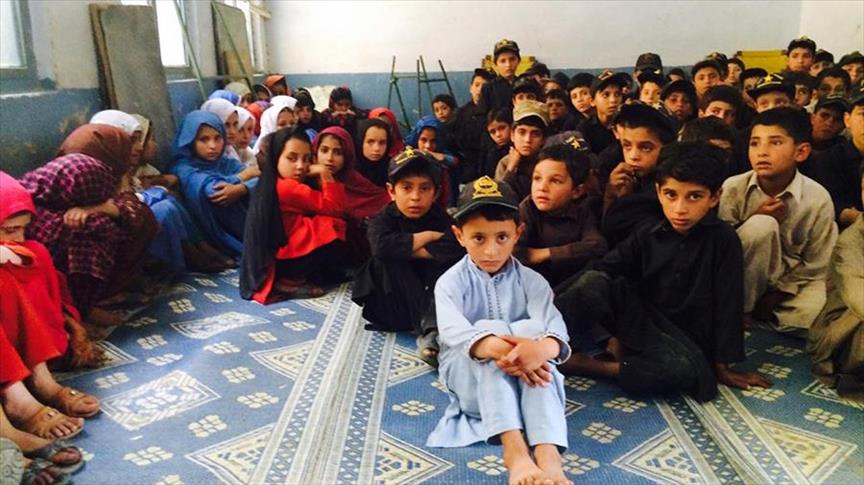Literacy rate in Pakistan falls 2 pct: Minister
Education minister tells Senate that over last 2 years literacy rate in country dropped from 60 pct to 58 pct

By Islamuddin Sajid
ISLAMABAD, Pakistan
Over the last two years Pakistan's literacy rate has dropped from 60 percent to 58 percent, said the country's education minister on Thursday.
Shafqat Mahmood told the Senate the decrease was due to the growing population and lack of education facilities in far-flung areas.
"Not only has the literacy rate dropped but also over 20 million children in the country are out of schools," said Mahmood.
The government is planning to launch an adult education program to boost the literacy rate 10-15 percent within a few years, he added.
In August, in his first speech after taking office, Prime Minister Imran Khan promised to run state schools in double shifts -- morning and evening -- to tackle the grave situation.
An April report by the Academy of Education Planning and Management, a subsidiary of the Education Ministry, stated that Pakistan currently has 51.5 million children aged 5 to 16. Among them only 28.7 million children are attending school, while 22.8 million children are out of school.
Pakistan ranks 129 out of 137 countries on health- and primary education-related goals, the report added.
The southwestern Balochistan province has the highest number of out-of-school children (70 percent) followed by the tribal areas of northwestern Khyber Pakhtunkhwa province (57 percent).
More girls than boys are out of schools, 49 percent and 40 percent respectively.
Education experts' views
Education leaders disagree with the new figures saying that in the last 10 years education has improved in the country.
Rafique Khatak, a former senior official in the Education Ministry of Khyber Pakhtunkhwa, said: "Literacy rates have improved over the years. The minister could have been talking about enrollment in public schools and there may have been a shift to private schools over the last two years."
Free education for children aged 5 to 16 is a right guaranteed by the Constitution. However, most parents prefer to send their children to better-quality private schools, or seminaries -- where food and lodging is also free-of-cost.
Manzar Jan Sajid, former head of the Pakistan tribal areas education department, said the situation will improve after China's Belt and Road project is completed in Pakistan.
The multibillion-dollar China Pakistan Economic Corridor (CPEC) will build a network of roads and railways to transport cargo, oil and gas from Balochistan's Gwadar port to China's northwestern Xinxiang province.
The economic corridor will not only provide China cheaper access to Africa and the Middle East but will also earn Pakistan billions of dollars for providing transit facilities to the world’s second-largest economy.
"This new project will bring employment and business that would held citizens educate their children," said Sajid.
He called poverty the leading cause of dropping out.
"Most poor parents send their children to work to earn money and help out their families," he said.
Some 50.4 million people live below the poverty line in Pakistan, although the percentage has declined to 24.3 percent, according to official data.
Anadolu Agency website contains only a portion of the news stories offered to subscribers in the AA News Broadcasting System (HAS), and in summarized form. Please contact us for subscription options.







